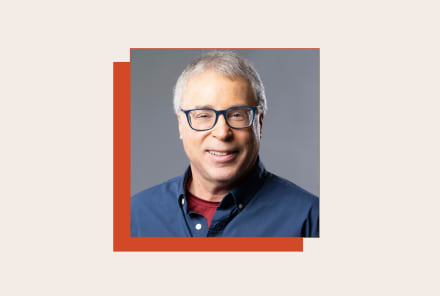Advertisement
Why You Need A Health Coach Now More Than Ever


Recent statistics suggest1 that we’re facing a shortfall of more than 50,000 physicians by 2025. This is an alarming finding, given the skyrocketing rates of chronic disease. Even without this shortage, you may have noticed that doctors lack the time and training to help us make lasting changes in areas such as diet, physical activity, sleep, and stress management, which are crucial for addressing chronic disease.
If we want to stem the rising tide of chronic disease, we need a new model of health care that is better equipped to support patients in changing their behavior. And that's where health coaches come in. I believe they will play an important role in a new, more holistic approach to wellness.
It's time for a new health paradigm that better serves your needs.
Our current medical paradigm is failing in the treatment of chronic disease. Despite massive spending on screening, medical research, and pharmaceutical development, rates of chronic diseases have continued to climb. Six in ten Americans now has a chronic disease, and one in four has multiple chronic diseases. If you're one of these Americans struggling with a chronic illness, you may have noticed that the conventional way of treating these diseases is based on suppressing symptoms with drugs and managing the disease after it has already occurred rather than preventing and reversing disease by addressing its underlying causes. To use an analogy, imagine you get a rock stuck in your shoe, and it makes your foot hurt. If you look for help in the current medical system, you may get a description of foot pain along with directions to the nearest drugstore for some extra-strength ibuprofen. Sure, ibuprofen would help to reduce the pain. But wouldn’t it be better just to take off your shoe and dump out the rock?
The "rocks" that are driving chronic disease are overwhelmingly environmental and behavioral—poor diet, lack of physical activity, sleep deprivation, exposure to toxins, stress, and many more. Although our genes do play a role in predisposing us to certain diseases, recent research has shown2 that almost 85 percent of the risk of disease comes down to these environmental and behavioral factors. Health coaches are ideally positioned and trained to support you in changing your diet, lifestyle, and behavior—which is the single most important step you can take to address chronic disease.
How health coaches can help you stay healthy long-term.
A well-trained health coach acts as a guide and ally, helping you create new, healthy habits, let go of unhealthy behaviors, transform your health goals into realities, and ultimately become their own most powerful advocate. Health coaches also help you identify potential stumbling blocks and hold you accountable for your health behaviors so that you have the best chance of reaching your goals. By teaching you the skills you need to live a healthy life, health coaching can significantly lower3 long-term health care expenditures, making this a cost-effective approach for various socioeconomic backgrounds.
The medical community has begun to catch on to the benefits of health coaching, and a growing body of research indicates that health coaching can significantly improve outcomes for patients with chronic diseases. For example:
- A large clinical trial involving 415 obese individuals found that those who worked with a health coach to make dietary and lifestyle changes experienced significantly greater weight loss compared to those who received remote support only (via email and telephone) or who had no outside support at all.
- In patients with type 2 diabetes, six months of health coaching resulted in significant reductions in weight, waist circumference, and hemoglobin A1c. Participants who received coaching also reported improvements4 in their mood, satisfaction with life, and quality of life.
- Health coaching was found to improve measures of health, fitness, and quality of life in cancer survivors.
- Health coaching as a part of a worksite wellness program has been found5 to improve physical and mental health in employees while also encouraging the adoption of healthy long-term dietary and lifestyle behaviors.
A collaborative approach that links doctors and other licensed clinicians with health coaches, nutritionists, and other allied providers can provide patients with a much higher level of care and support in the areas that will make the biggest difference when it comes to making successful diet, lifestyle, and behavioral changes.
The urgency of our health care situation means that healing needs to become a team effort, and I believe that the unique skills of health coaches are going to play a pivotal role in stopping the epidemic of chronic disease and empowering all of us to take responsibility for our own health.
Curious about health coaches? Here's what one health coach tells her clients.
Watch Next
Enjoy some of our favorite clips from classes
Enjoy some of our favorite clips from classes
What Is Meditation?
Mindfulness/Spirituality | Light Watkins
Box Breathing
Mindfulness/Spirituality | Gwen Dittmar
What Breathwork Can Address
Mindfulness/Spirituality | Gwen Dittmar
The 8 Limbs of Yoga - What is Asana?
Yoga | Caley Alyssa
Two Standing Postures to Open Up Tight Hips
Yoga | Caley Alyssa
How Plants Can Optimize Athletic Performance
Nutrition | Rich Roll
What to Eat Before a Workout
Nutrition | Rich Roll
How Ayurveda Helps Us Navigate Modern Life
Nutrition | Sahara Rose
Messages About Love & Relationships
Love & Relationships | Esther Perel
Love Languages
Love & Relationships | Esther Perel

















